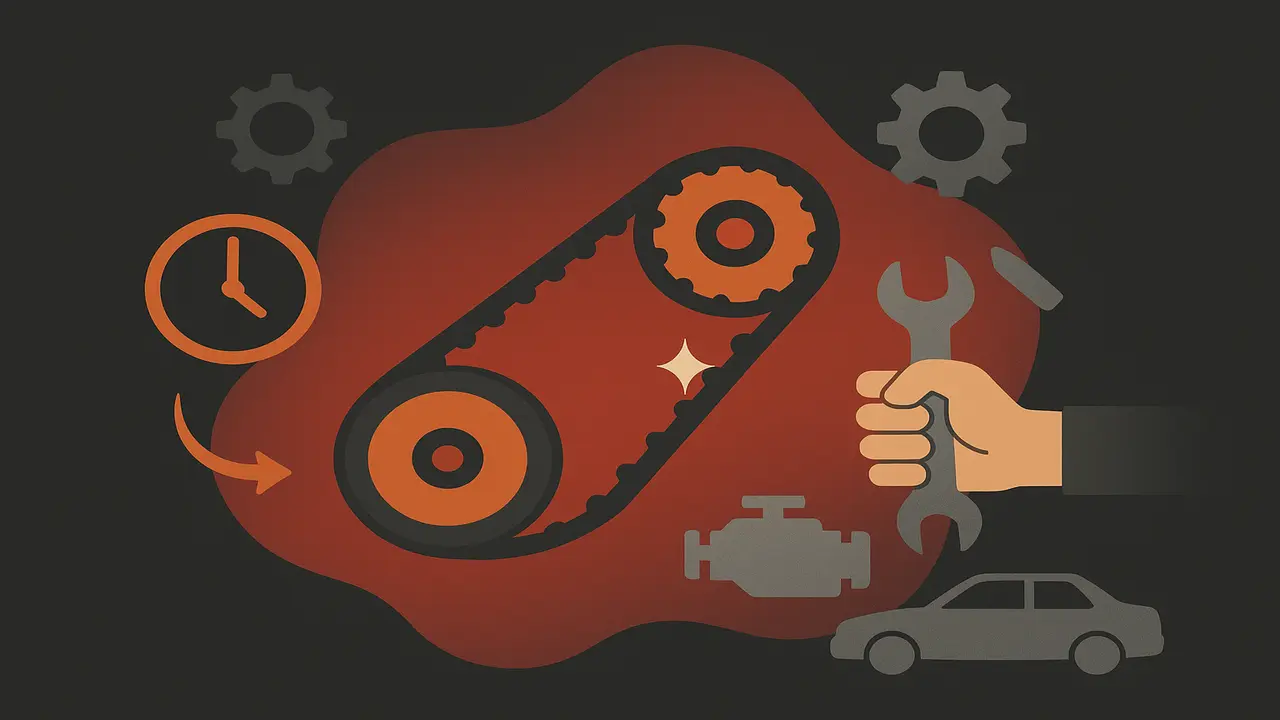The timing belt is a vital component of a vehicle’s engine, ensuring that the camshaft and crankshaft are properly aligned. It regulates the timing of the engine’s valves, letting them open and close at the appropriate times for maximum combustion. Despite its importance, many car owners ignore timing belt maintenance until a major problem emerges. Replacing the timing belt at the scheduled times is critical to engine efficiency, longevity, and safety. This article discusses the importance of timing belt replacement in automotive maintenance, and it also covers the implications of failing to do so.
Preventing Engine Failure
One of the most serious implications of a worn timing belt is engine failure. The timing belt synchronizes the movement of the engine’s components, and if it fails while the engine is operating, it can cause extensive damage. In interference engines, a broken timing belt can cause pistons to collide with open valves, resulting in bent valves, fractured pistons, and cracked cylinder heads. Such damage frequently necessitates substantial repairs, including engine replacement, which can be prohibitively expensive.
Ensure smooth engine performance
A correctly working timing belt ensures that the engine runs smoothly by maintaining accurate timing during the combustion process. Timing belts wear out over time and can slip, resulting in poor engine efficiency. A malfunctioning timing belt can cause rough idling, engine misfires, and a loss of power. Replacing the timing belt according to the manufacturer’s guidelines keeps the engine running smoothly and efficiently, preventing unexpected breakdowns and costly repairs.
Avoiding costly repairs
Replacing a timing belt may appear to be a large outlay, but it is significantly less costly than dealing with the aftermath of a damaged belt. A scheduled timing belt replacement usually costs a few hundred dollars; however, correcting engine harm caused by a snapped belt might cost thousands. Regular servicing saves money in the long run and avoids unexpected costs associated with severe engine problems.
Enhancing Fuel Efficiency
A worn-out timing belt can reduce fuel economy. When the belt becomes stretched or frayed, the engine must work harder to maintain perfect timing, which increases fuel consumption. A new timing belt guarantees that the engine runs at peak efficiency, optimizing fuel usage and saving vehicle owners money.
Maintaining Manufacturer Warranty Compliance
For newer vehicles, according to the manufacturer’s suggested maintenance schedule, timing belt replacement is critical for warranty compliance. Neglecting planned maintenance might void the guarantee, leaving automobile owners responsible for any resulting repairs. Regular timing belt replacement ensures that the car remains under warranty and performs properly.
Preventing Unexpected Breakdowns
A broken timing belt can leave cars stranded on the road, generating inconvenience and even dangerous circumstances. Timing belts rarely display apparent symptoms of wear, making it impossible to predict failure without routine inspections. Replacing the timing belt at the recommended intervals decreases the danger of unexpected breakdowns, giving drivers peace of mind.
Protecting Other Engine Components
The timing belt works in tandem with other engine components, including the water pump and tensioners. Many manufacturers recommend changing these components, together with the timing belt, to ensure peak performance. A failed timing belt can put additional strain on these components, resulting in early wear and possible engine damage. Replacing the timing belt as part of routine maintenance protects the entire engine system from undue stress and failure.
Improving Vehicle Longevity
A well-maintained car lasts longer and preserves its value better than one with poor maintenance. Regular timing belt replacement increases the vehicle’s overall longevity by keeping the engine in good condition. This not only benefits automobile owners who intend to keep their vehicle for many years, but it also increases the market value if they decide to sell it in the future.
Timing belt repair is an essential part of vehicle maintenance that should not be disregarded. A malfunctioning timing belt can cause severe engine damage, pricey repairs, and unexpected problems. Regular replacement maintains smooth engine operation, increases fuel efficiency, and increases the vehicle’s lifespan. Car owners can save money and enjoy an efficient, well-functioning vehicle for many years by following manufacturer guidelines and arranging timely replacements.
Also Read
- Audi GT50 Concept: A Loud Reminder of Why Car Enthusiasts Fell in Love With Audi
- Nearly 30% of UK Drivers Believe Car Tax Should Be Based on Mileage — Survey
- Why Planes and Boats Escaped the Luxury Tax But Cars Didn’t
- Australia’s Headlight Confusion: Authorities Warn Drivers After Viral $250 Headlight Rule Goes Wild Online
- 2025 Hyundai Venue Facelift Launched in India – Full Details, Variants, and Price
